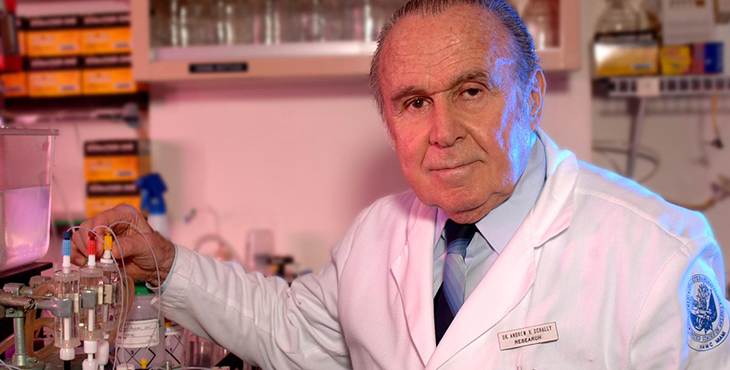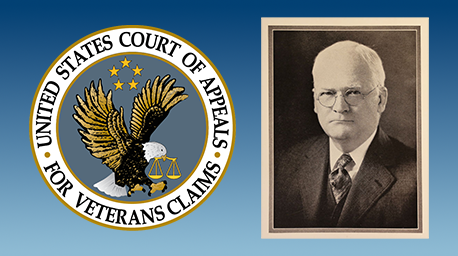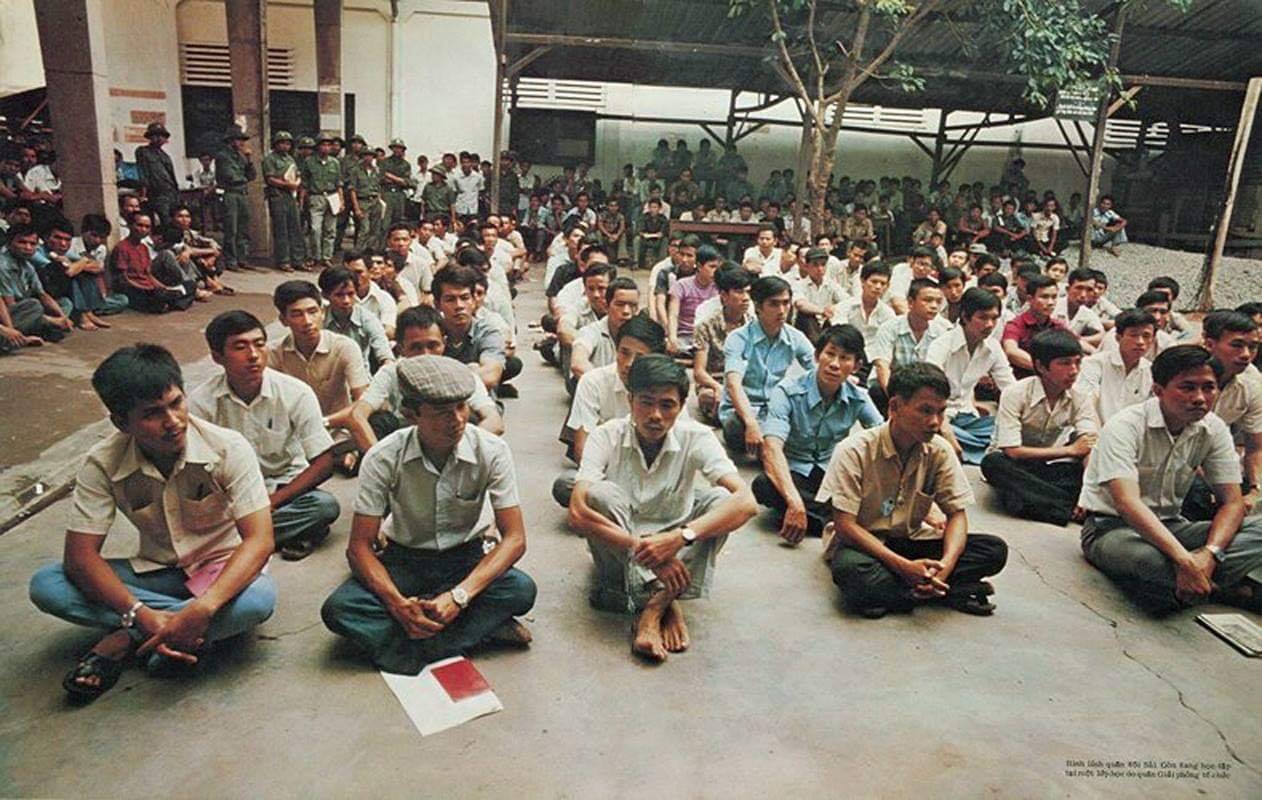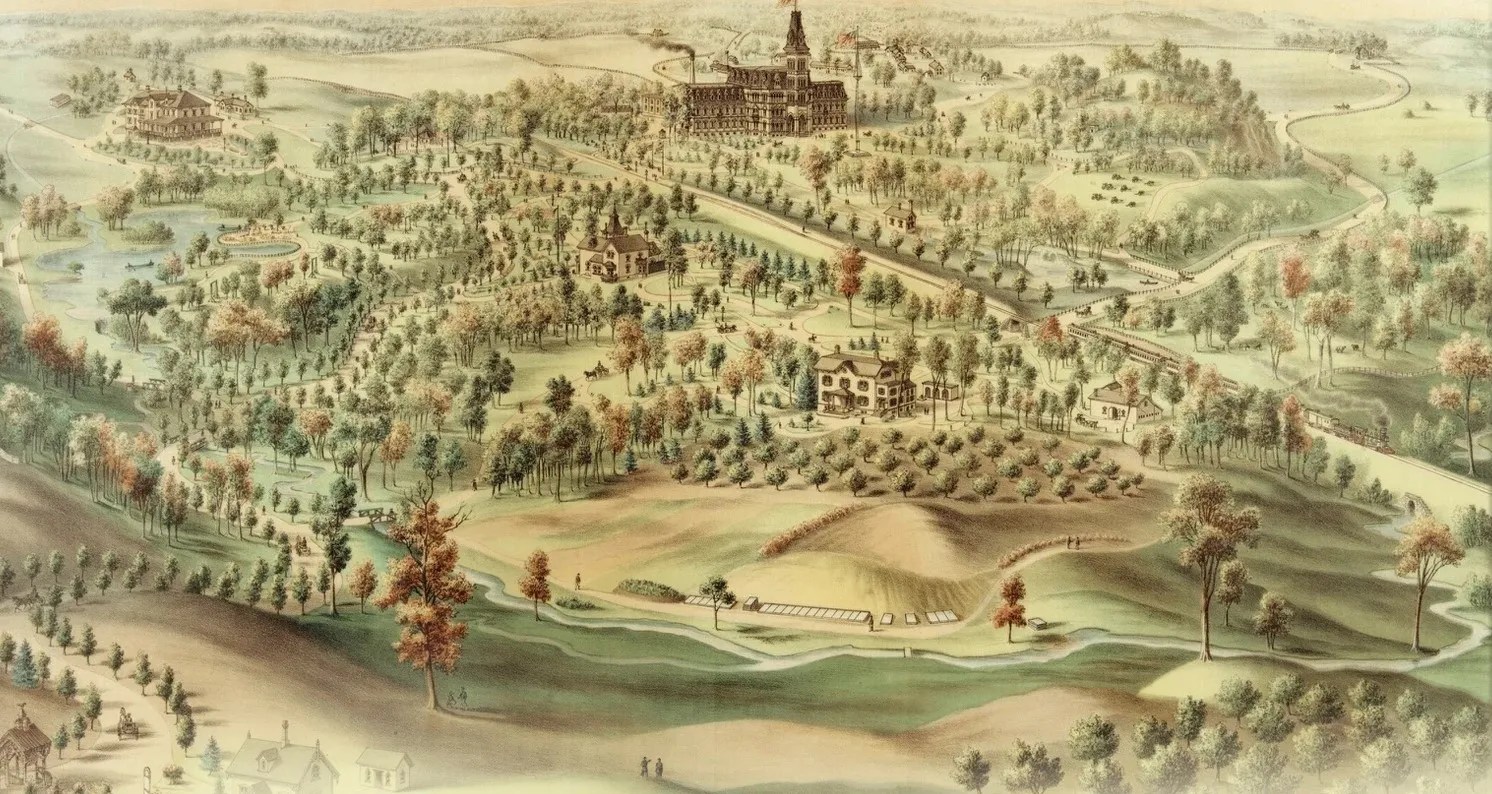At a young age, Andrew Schally began exploring the possibility of a career in medical research. Born in Poland on November 30, 1926, Schally came from humble beginnings, while growing up in a wartime environment. Throughout the Second World War, Schally and his family lived within a Jewish-Polish community in Romania, enduring Nazi occupation in the region that lasted through 1945.1 Following the war, he began his lifelong journey into medical research by first studying in Scotland and England, before being admitted as a member of the National Institute of Medical Research Mill Hill of London in 1950 where he studied chemistry.2

While working at Baylor University in the late 1950s, Schally began collaborating with the local Houston VA Hospital where he gained renown for his work with neuroendocrinology and gastroenterology. Seeing his research potential, the Veterans Administration decided to transfer him to the New Orleans VA Hospital where he became the chief researcher of the hypothalamus in 1962.3 This was also the year that Schally officially became a United States citizen.
At the same time, Schally was also a Professor of Medicine at Tulane University, highlighting the relationships the Veterans Administration formed with local medical schools to aid in research and discovery in the medical field.4 Fond of military history, Schally felt a great sense of honor in his new position as he worked to help Veterans.
Schally’s research primarily focused on the body’s production and effect of hormones. Specifically, Schally studied hormones released in the hypothalamus of the brain including thyrotropin-releasing hormones, luteinizing hormone-releasing hormones, and follicle-stimulating hormones.5
Ultimately, Schally concluded that the pituitary gland of the brain was under the control of the hypothalamus which regulates and releases particular hormones. Due to the relatively small quantities of these hormones within the pituitary, Schally and his combined VA-Tulane staff worked with a “large quantity of pig brains and lamb brains to uncover the structure of these hormones.6
In 1969, the team succeeded in isolating the pituitary hormone in question.7 As a result, they were able to reproduce this hormone chemically. This research had significant implications, marking a breakthrough in research surrounding contraception, diabetes, abnormal growth, mental retardation, as well as depression and other mental disorders.8
His research on the synthesis of hypothalamic hormones garnered Schally various honors and awards.9 In 1977, Schally along with collaborator Roger Guillemin received the Nobel Prize in Physiology or Medicine for “their discoveries concerning the peptide hormone production of the brain.”10 This was the same year that fellow VA researcher, Dr. Rosalyn Yalow won the Nobel Prize in Physiology or Medicine for her work with radioimmunoassay, becoming the only pair to ever earn the reward within the administration.
Since his arrival in 1962, Dr. Schally has continued to serve our Nation’s Veterans through his dedication to medical research which still continues today. When asked to reflect on his career, he wrote, “I am deeply grateful to the Department of Veterans Affairs for allowing me to serve U.S. Veterans — and in fact, indirectly the whole nation.”11
Through research into “therapies for diseases, such as cancer” and other health issues, Dr. Schally’s work has had significant implications within the VA community and across the civilian population as a whole.
Footnotes
- “Andrew V. Schally – Biographical,” Nobel Prize, The Nobel Prize. ↩︎
- “Andrew Schally,” Jewish Virtual Library, Jewish Virtual Library. ↩︎
- Ibid. ↩︎
- Ibid. ↩︎
- “Tulane University’s Contributions to Health Sciences research and education: A Guide: Dr. Andrew V. Schally,” Subject Guides, Tulane University Libraries. ↩︎
- “Andrew V. Schally – Facts,” Nobel Prize, Nobel Prize Organization. ↩︎
- Ibid. ↩︎
- “Tulane University’s Contributions to Health Sciences research and education: A Guide: Dr. Andrew V. Schally,” Subject Guides, Tulane University Libraries. ↩︎
- “Dr. Schally Receives International Awards,” The Virginia Gazette (December 3, 1974). ↩︎
- “The Nobel Prize in Physiology or Medicine 1977,” The Nobel Prize, Nobel Prize Organization. ↩︎
- Mitch Mirkin, “Reflections of a Nobel laureate in medicine on his career with VA,” VAntage Point, U.S. Department of Veterans Affairs. ↩︎
By Parker Beverly
VA History Office intern and Wake Forest undergraduate student
Share this story
Related Stories

Featured Stories
A Brief History of the Board of Veterans’ Appeals
On July 28, 1933, President Franklin Delano Roosevelt signed Executive Order 6230 creating the Board of Veterans’ Appeals (BVA). The BVA was created as part of the Veterans Administration (VA), which had been established only three years earlier.

Featured Stories
The Fall of Saigon 1975: A South Vietnamese Military Physician Remembers
"There was chaos in the streets when I made my way to the hospital on the morning of April 30, 1975. In a place of order, there was now great confusion. The director and vice director of the hospital were gone, making me, the chief of medicine, the highest-ranking medical officer."



